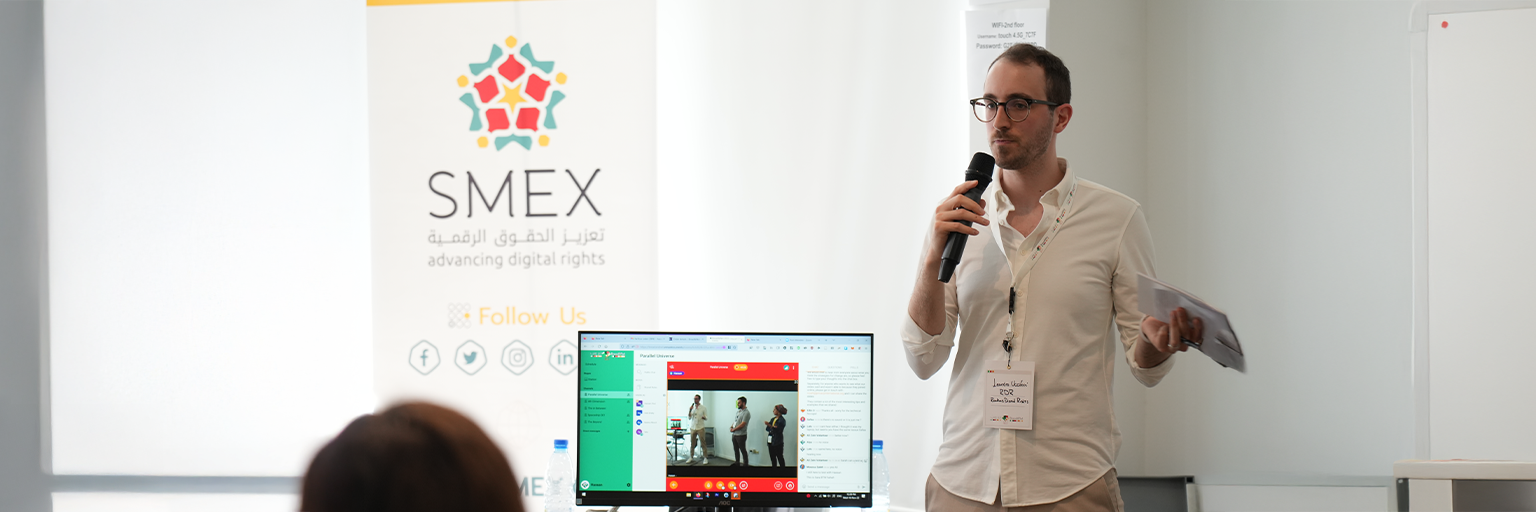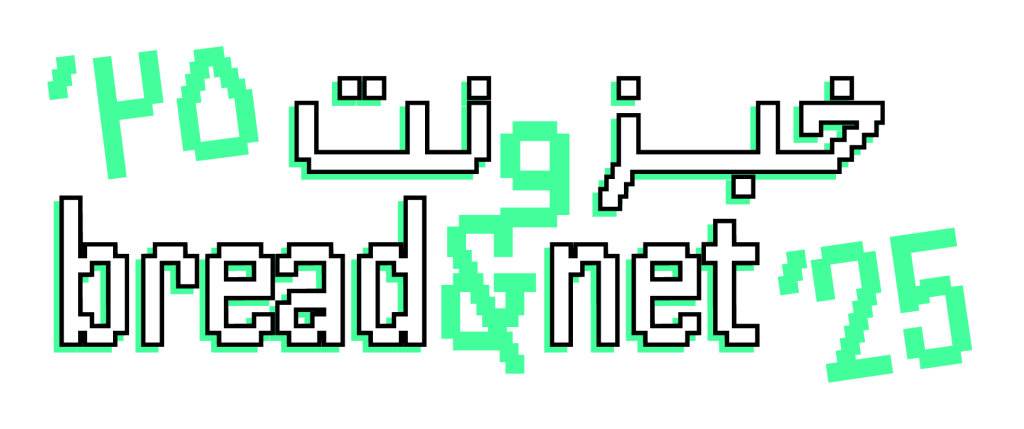Check out our Bread&Net 2025 program!
To access full details of all sessions, please book your ticket or sign in to Bread&Net event platform to explore the complete program. Sessions will be offered in Arabic and English, with interpretation available for selected sessions.
Online Sessions:
Online Sessions:
Online Sessions:
An introductory track for those new to digital rights. It will cover the basics of privacy, freedom of expression, and the international frameworks that uphold these rights online. This track will be useful for newcomers to the digital rights field or for those seeking to better understand the key issues.
This track will focus on the evolving landscape of the right to privacy and the protection of personal data in the WANA region, where state surveillance, massive data collection, and draconian laws often intersect. It will explore the challenges of protecting personal data, the role of governments and businesses in data management, and their compliance (or lack thereof) with international privacy standards. Discussions will address the need for more efficient data protection laws and their enforcement, the risks of mass data surveillance, and the balance between national security and individual privacy in the context of authoritarian regimes and political instability. Special attention will be given to the vulnerabilities faced by marginalized communities and activists.
This track will examine the growing tension between freedom of expression and the increasing control of information in the WANA region, where authoritarian regimes frequently violate fundamental freedoms. It will explore the threats posed by censorship, misinformation, and disinformation, and the role of both state and private actors in shaping digital public discourse.

This track will explore the increasing use of surveillance technologies by governments and corporations in the WANA region, particularly in the context of ongoing wars and rising authoritarianism. It will examine how tools like spyware, mass data collection, and AI-driven surveillance are being deployed to monitor, control, and suppress dissent. The discussion will focus on the broader implications for privacy, security, and other human rights, highlighting how these technologies are weaponized against activists, journalists, and communities living under repression and conflict.
This track will examine how war and conflict in the WANA region, particularly in Palestine, Lebanon, Sudan, and Yemen, have exacerbated violations of digital rights. The track will address the weaponization of technology in conflict, including cyberattacks, spyware, and AI-driven propaganda, as well as the risks faced by journalists, activists, and civilians documenting human rights abuses. Additionally, it will highlight the critical issue of internet access in war zones, where connectivity is often restricted as a tool of control, deepening humanitarian crises, and isolating communities from the global digital sphere.
This track highlights the digital divide in the WANA region by examining barriers to access, including limited internet connectivity, censorship, and the lack of digital tools. It also discusses strategies for improving digital infrastructure, especially in war-torn areas, and addressing issues related to telecommunication networks and internet connectivity. The track promotes equal access to the digital world for marginalized groups.

This track will examine how governments across the WANA region use legal frameworks to justify digital repression, criminalize dissent, and tighten control over online spaces. Authoritarian regimes are increasingly deploying legislation to silence activists, journalists, and opposition voices. The track will explore the expansion of mass surveillance, restrictions on encryption, and the legal justifications for internet shutdowns, as well as the role of international tech companies in enforcing or resisting these laws. This track will also focus on the role of litigation in holding both state and corporate actors accountable for digital rights violations in the WANA region, It will explore key cases, strategies for legal recourse, and the role of human rights defenders in challenging illegal surveillance, censorship, and repression.
This track will explore the growing intersection between companies and human rights in the WANA region. Emphasis will be placed on the responsibility of tech giants in implementing international standards on business and human rights, and the right of people to hold tech giants accountable.
Exploring the intersection of digital rights, gender, sexual and reproductive health and rights (SRHR), and the unique challenges faced by marginalized groups in the digital sphere. This track will highlight how technology can either empower or further marginalize these communities, and what needs to be done to protect their rights in the digital sphere.

In a region marked by war, repression, and constant digital surveillance, well-being is both an online and offline struggle. This track will explore the psychological, emotional, and physical toll of digital rights work, activism, and everyday online engagement in the WANA region. It will address the impact of online harassment, doxxing, surveillance, and exposure to distressing content, especially for journalists, human rights defenders, and conflict-affected communities. It will also consider the offline realities of living under war, displacement, and digital oppression.
This track will explore the transformative potential and risks of AI and emerging technologies in the WANA region, with a particular focus on the Gulf countries’ investments in these technologies and their potential implications. It will address the ethical dilemmas surrounding the use of AI, the risks of surveillance and state control, and how these technologies could exacerbate existing human rights violations and how they are militarized. The track will emphasize the need for these technologies to respect and protect fundamental rights, ensuring they serve the public good without infringing on personal freedoms or reinforcing authoritarian practices.
From open-source platforms to community-driven digital tools, technology is increasingly being developed and deployed to serve the public interest. This track highlights innovations that promote human rights, expand access to information, and strengthen communities. It provides a space for showcasing tools, exploring case studies, and engaging in critical dialogue on how technology can be designed, adapted, or implemented to address pressing social needs. Ideal for tech demos, hands-on workshops, and policy-relevant discussions, this track invites a range of actors—from grassroots organizers to institutional stakeholders—to consider the role of technology in advancing the common good.

This track will focus on grassroots organizing in the WANA region, addressing strategies for building digital movements, from protests and advocacy to coalition-building and aspiring tech futures. It will look at how communities are using digital tools for collective action while navigating repression and surveillance by state actors.
This track will look at the unique challenges of funding digital rights initiatives in the WANA region, especially in the face of political instability, authoritarian regimes, and shrinking foreign aid. It will explore the sustainability of grassroots movements and how digital rights defenders can secure resources in these uncertain times.
Do you have an idea for a session that doesn’t quite fit under the main themes? We’ve got you covered. The Open Track is designed for proposals that may fall outside the predefined categories but are still rooted in digital rights and human rights. If your session explores emerging issues, underrepresented topics, or innovative approaches that align with Bread&Net’s mission, we welcome your submission. This track provides the space for fresh perspectives, cross-cutting conversations, and ideas that challenge the status quo.
